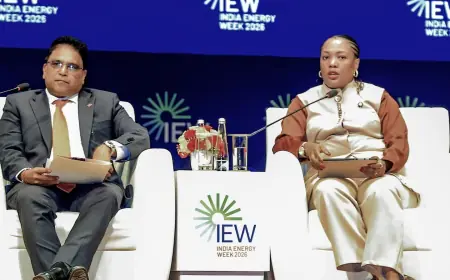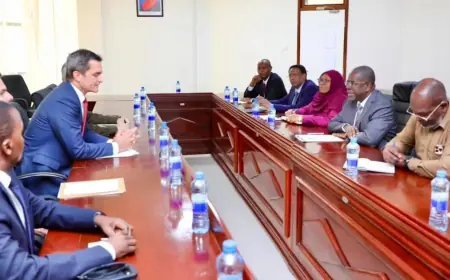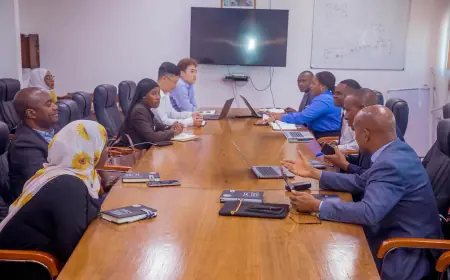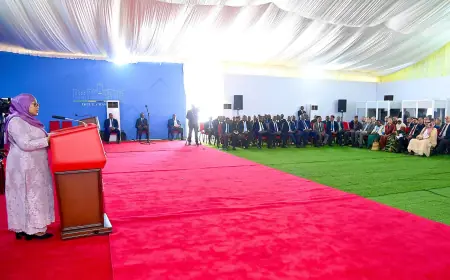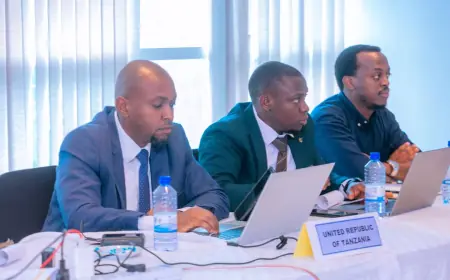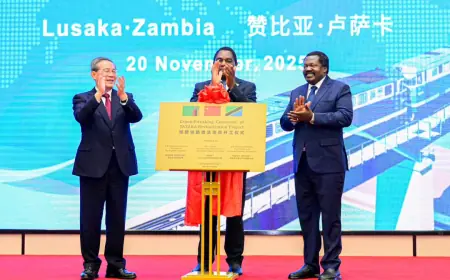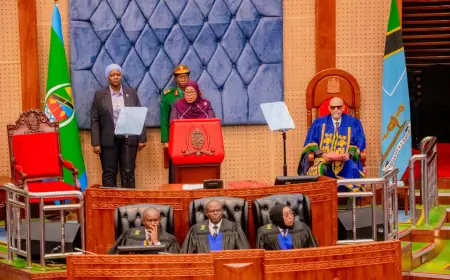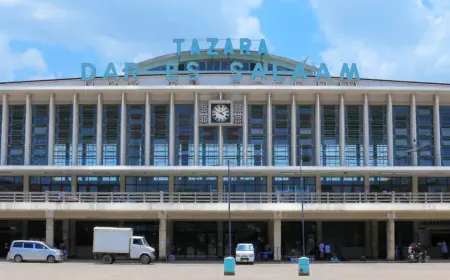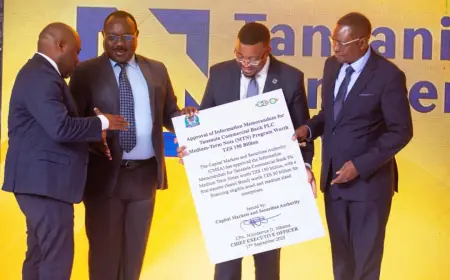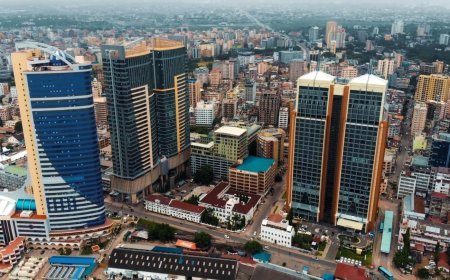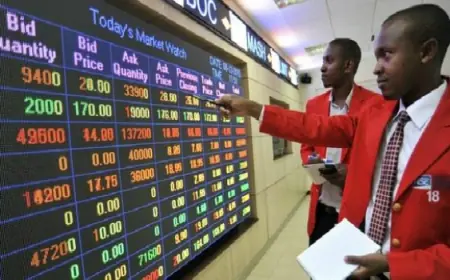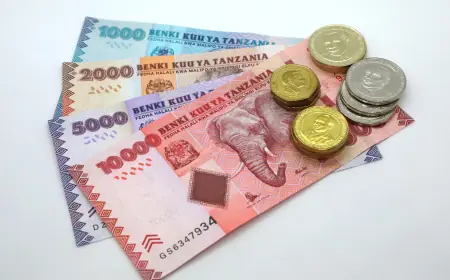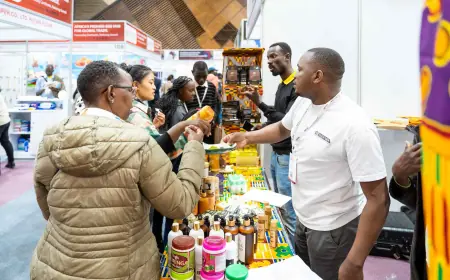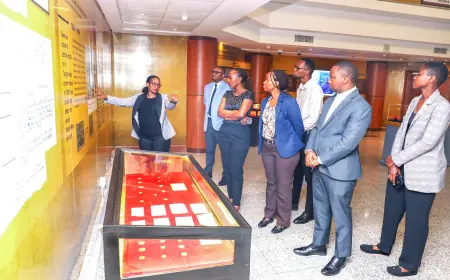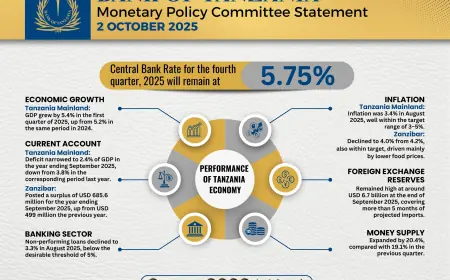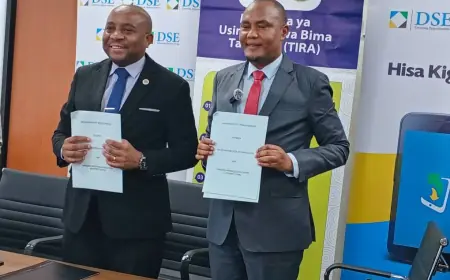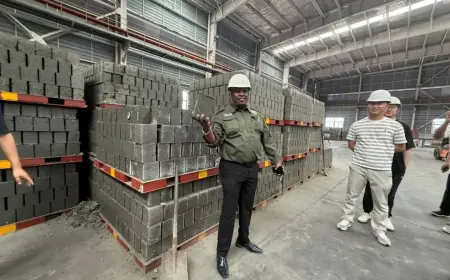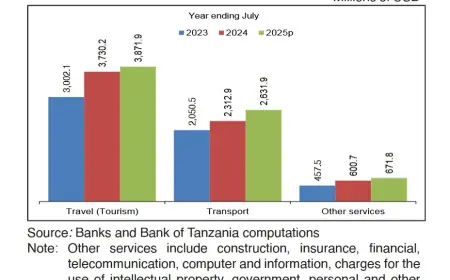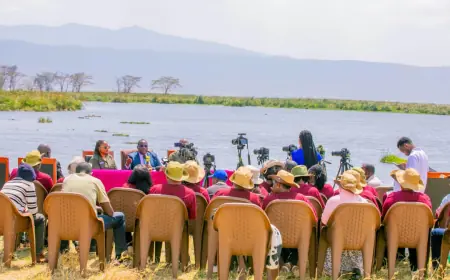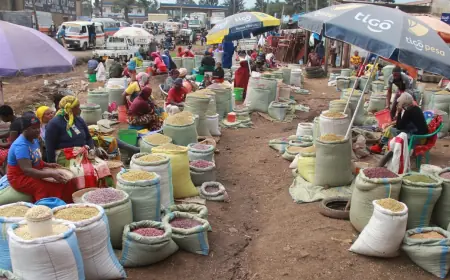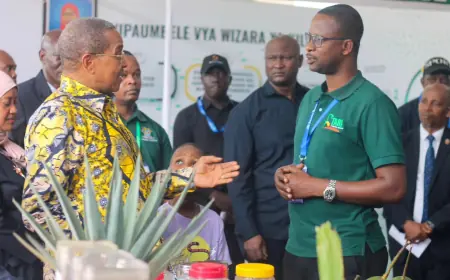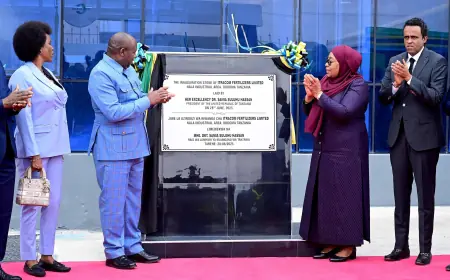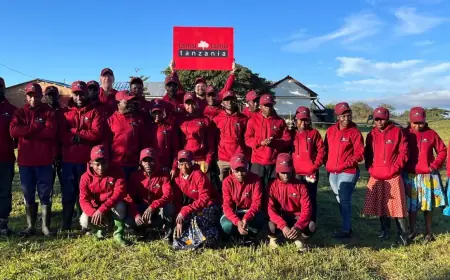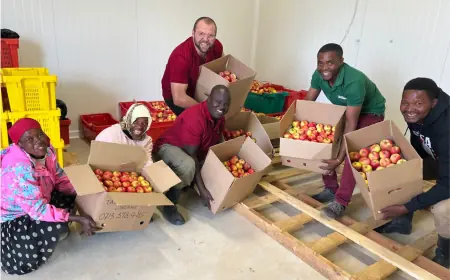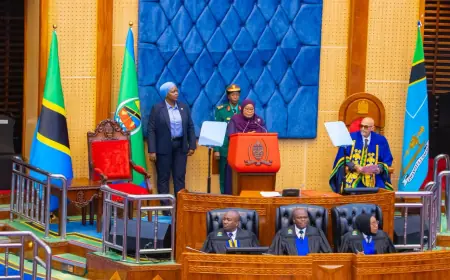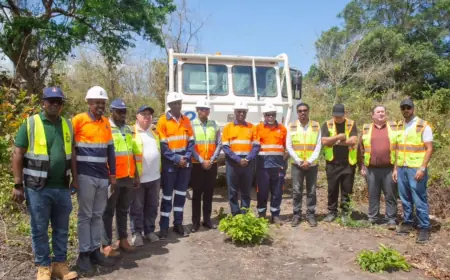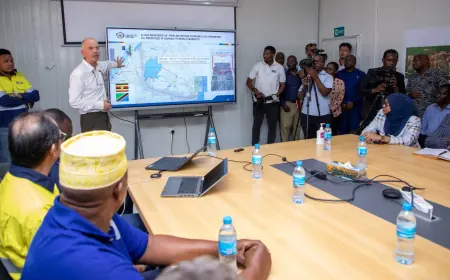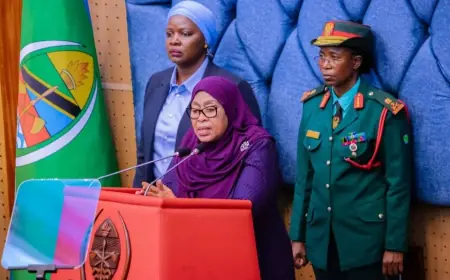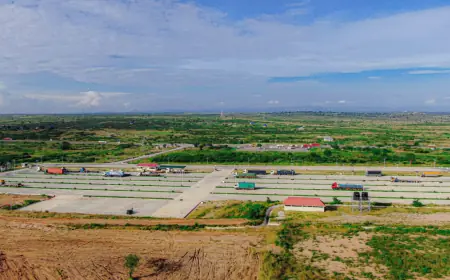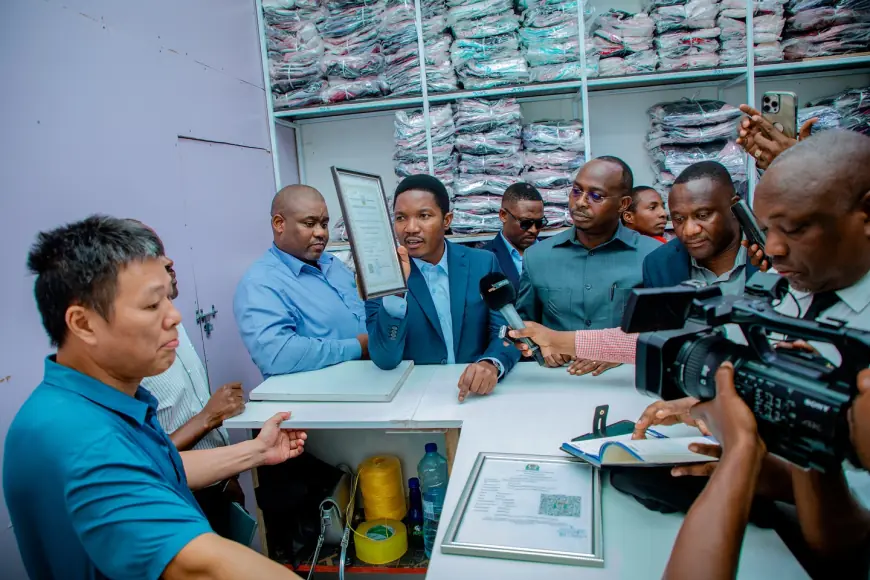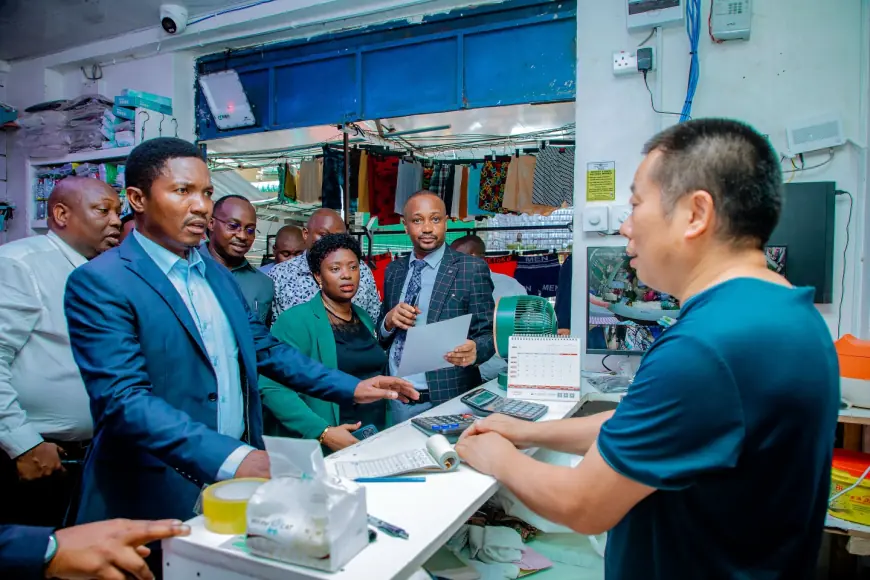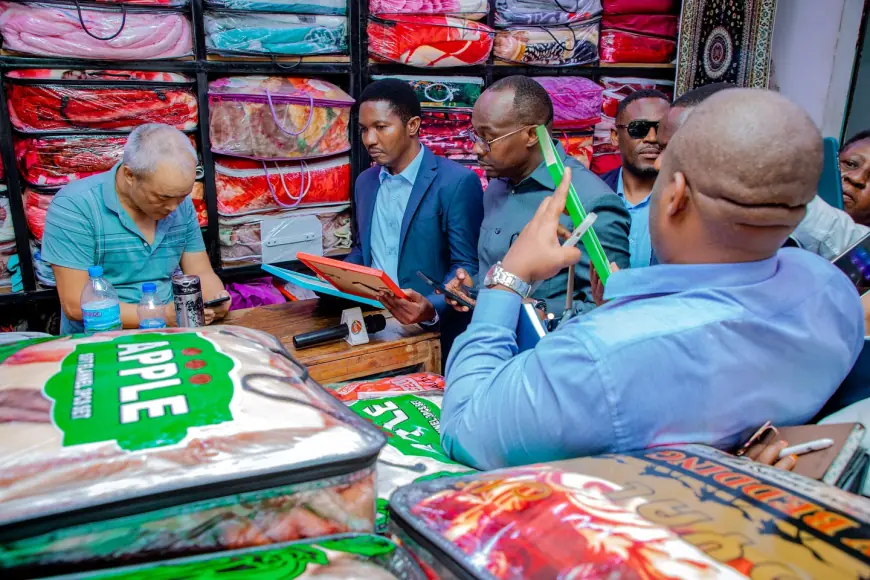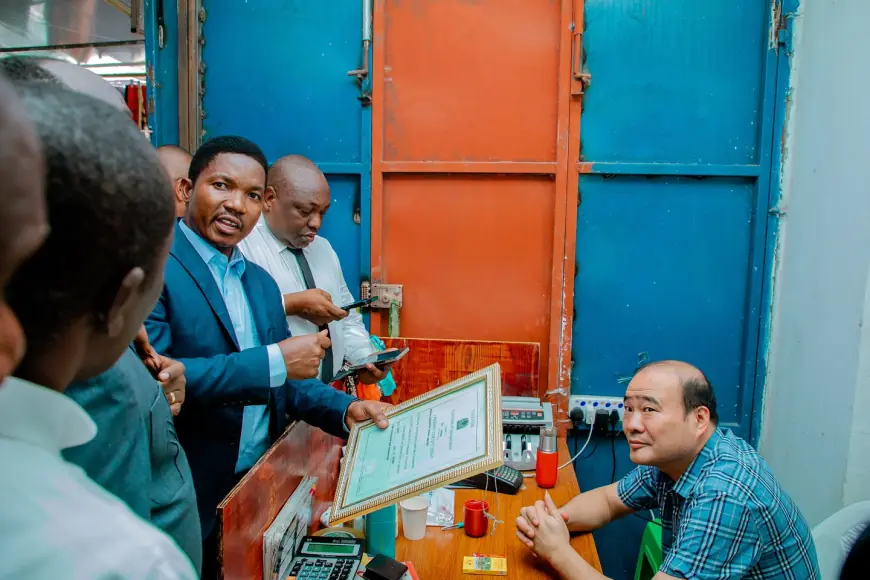Tanzanian Government’s Intervenes on Chinese Petty Traders’ Saga
An investigation uncovered widespread exploitation, including the fraudulent use of local identities. In response, authorities have launched crackdowns, including deportations, and are implementing stricter regulations, such as a new permit system
Responding to growing concerns regarding the increasing activities of foreign nationals in retail and wholesale trading in Tanzania, the Minister for Industry and Trade, Dr Selemani Saidi Jafo, announced on February 2, 2025 the formation of a 15-member committee.
This committee comprised representatives from various public and private institutions.
The committee was tasked with investigating the influx of foreign traders in Kariakoo Market.
The team was also tasked with assessing the impact of foreign traders on local businesses, identifying regulatory loopholes, and proposing measures to ensure that economic opportunities primarily benefit Tanzanians.
Dr Jafo established the committee in adherence to directives from President Dr Samia Suluhu Hassan, which aimed to guarantee that foreign nationals do not participate in businesses designated for Tanzanian citizens.
The committee was also instructed to oversee the issuance of business licences to both Tanzanian citizens and foreign nationals, including the registration of businesses and the development of a comprehensive database.
“President Samia Suluhu Hassan received complaints from traders about the growing presence of foreigners in the retail business. While many arrive with investment agendas, their activities often do not align with true investment purposes,” Dr Jafo said.
Fifteen-Member Committee’s Report
Dr Jafo's 15-member committee submitted its final report on March 17.The 15-member ministerial committee unearthed a concerning trend of widespread misuse of Tanzanian citizens' credentials by foreign nationals, enabling them to unlawfully gain a dominant foothold in the local business environment.
The committee's findings painted a picture of regulatory loopholes being exploited, tax evasion, and Tanzanians being left with substantial debts incurred under their assumed identities.
According to the committee's report, thousands of foreign-owned businesses, a significant number operating within the bustling Kariakoo market, circumvented regulatory checks specifically put in place to safeguard Tanzanian economic interests.
This circumvention effectively created an unregulated environment, allowing foreign traders to encroach upon sectors legally reserved for local entrepreneurs. The report highlighted a particularly troubling tactic: the systematic misuse of Tanzanian identities.
The committee discovered a prevalent practice where foreign-owned companies utilise the National Identification Authority (NIDA) numbers of their local employees to falsely present their businesses as Tanzanian-owned.
This creates a deceptive appearance of compliance while simultaneously pushing out legitimate local business owners.
Adding to the gravity of the situation, many of these foreign operators are also accused of widespread tax evasion.
Furthermore, they are reportedly leaving behind significant debts registered under the names of the Tanzanian individuals whose identities they have fraudulently used.
In response to these alarming revelations, Dr Jafo called for immediate and decisive policy reforms to shield the local business sector from what he termed "foreign exploitation".
"Our team has presented a report highlighting serious concerns, including the misuse of Tanzanian citizens' credentials by foreigners who are now dominating the local business sector," said Dr Jafo during a meeting with the investigative committee.
Dr Jafo further elaborated on the extent of the problem, revealing that some foreign nationals were found to be operating across the entire business value chain – from production right through to distribution – often lacking proper documentation or operating under work permits that do not accurately reflect their actual business activities.
"Foreigners are hiding in warehouses without permits, and others with permits meant for professions such as engineering are instead engaging in retail trade," the minister asserted.
"This is unacceptable."
The findings of this committee are likely to prompt swift action from the government to tighten regulations, enhance enforcement, and protect Tanzanian citizens and their businesses from unfair foreign competition and exploitation.
The focus will now likely turn to implementing the "urgent policy reforms" called for by Minister Jafo to rectify the situation and ensure a level playing field for local entrepreneurs.
Authorities’ Response to the Committee
Following its recommendations, several remedial actions were taken and are already in progress.
The Immigration Department launched a special operation targeting foreign traders operating illegally, apprehending 7,900 foreign nationals without the necessary permits.
Of these, 4,796 have been deported, 703 fined, and 257 subsequently produced valid documentation.
In a parallel effort, the Business Registration and Licensing Agency (BRELA) stepped up its work to prevent foreign nationals from engaging in business activities legally reserved for Tanzanians.
The agency is also investigating businesses that appear to be owned by locals but are, in fact, run by foreign nationals.
Dr Jafo also conducted a field visit to Kariakoo, where he expressed frustration over the continuing presence of foreign traders operating without the necessary documents. “I am not satisfied with this situation,” he said.
On May 5, Dr Jafo convened a meeting with the 15-member committee evaluating trade between local and foreign traders, alongside leaders from the Kariakoo Traders Association.
At this meeting, Dr Jafo announced that the Ministry of Industry and Trade, working with the Ministry of Home Affairs, had agreed to introduce a specific permit system for foreign nationals entering the country for business.
Dr Jafo stressed that the 15-member committee’s findings should act as a guide and a benchmark for all sectors, with the objective of protecting the interests of Tanzanian citizens and the nation at large.
The Deputy Permanent Secretary in the ministry, Dr Suleiman Serera, reported that various institutions under the ministry had continued to action the directives issued.
This included BRELA, which had completed a draft amending the legislation on companies and business licences.
This amendment specifies which businesses are reserved for locals and which are for foreign nationals, and inspections have begun to identify companies breaching their licence conditions.
The Minister Visits Kariakoo
The same day, on May 5, Dr Jafo conducted a site visit to Kariakoo to see for himself the continued presence of foreign traders operating without the necessary documentation.
"I am not satisfied with this situation," he stated.
"Despite claims that the issue has been addressed, there are still foreign individuals operating without permits and others misusing work permits. This raises serious concerns about vested interests," Dr Jafo noted.
Dar es Salaam Regional Commissioner, Albert Chalamila, who accompanied the minister, also highlighted an increasing number of Chinese nationals allegedly using Tanzanian names to register businesses.
He warned that such practices are undermining opportunities for local entrepreneurs, many of whom lack the financial strength to compete.
The chairman of the National Traders’ Association (JWT), Mr Hamis Livembe, voiced concerns that some foreign traders operating in central markets possess disproportionately large capital reserves, thereby distorting fair competition.
What's Your Reaction?
 Like
0
Like
0
 Dislike
0
Dislike
0
 Love
0
Love
0
 Funny
0
Funny
0
 Angry
0
Angry
0
 Sad
0
Sad
0
 Wow
0
Wow
0
